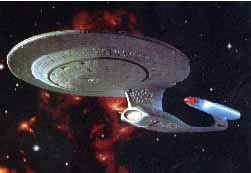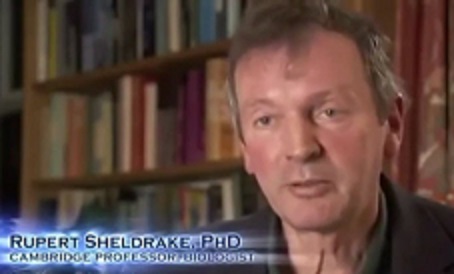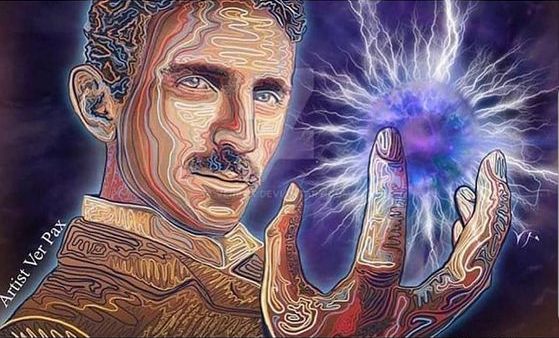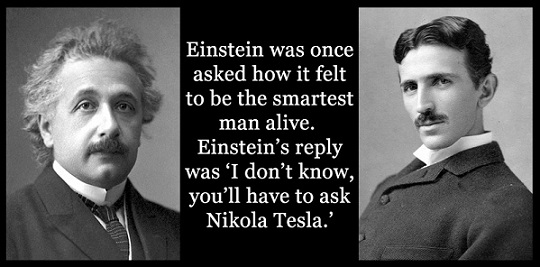|
home | what's new | other sites | contact | about |
|||||||||
|
Word Gems exploring self-realization, sacred personhood, and full humanity
Science & Discovery
"Science is the search for truth." Linus Pauling
Dominic Walliman: The Map of Mathematics Dominic Walliman: The Map of Physics Dominic Walliman: The Map of Chemistry Dominic Walliman: The Map of Biology Hillary Diane Andales: a 3-minute, prize-winning, explanation of Einstein’s Relativity Hillary Diane Andales: a 4-minute, prize-winning, explanation of Light Eugene Khutoryansky: dozens of simple animations on complex ideas of science and math The Univ of Michigan: the best explanatory illustration I've found of trig’s unit-circle
Victor Weisskopf, MIT Physicist: "Science is the opposite of information," not a collection of facts but a process of discovery, a world of ideas. "Science is something children should do - not something that should be done to them." Michael Faraday: Discoverer of the laws of electromagnetism (1831), Faraday was asked, "What is the use of this discovery." He answered, "What is the use of a child - it grows to be a man."
J. Robert Oppenheimer: “There must be no barriers to freedom of inquiry … There is no place for dogma in science. The scientist is free, and must be free to ask any question, to doubt any assertion, to seek for any evidence, to correct any errors. Our political life is also predicated on openness. We know that the only way to avoid error is to detect it and that the only way to detect it is to be free to inquire. And we know that as long as men are free to ask what they must, free to say what they think, free to think what they will, freedom can never be lost, and science can never regress.” Infinite Potential: The Life and Times of David Bohm, Dr. David Peat: “His ideas about electrons, connected in his mind with vortices and tornadoes, that earlier preoccupation, and with the notion that objects could emerge out of pure motion.”
Andrew Russell Forsyth, Mathematics, in Life and Thought: Russell comments on atom, a Greek word meaning 'indivisible,' that is, the smallest particle of matter - now a lesson against believing that one has arrived at final truth. "Many of you doubtless are familiar with the recent predominance of the word atom in scientific discussions. There was a time, even now easily recalled, when the use of the word was an implicit declaration that finality had been attained: human knowledge could not penetrate the indivisible ... now the more elusive electron has taken the field [and, more recently, quarks; also, possibly, vibrating strings]." Edwin P Hubble: "Equipped with his five senses, man explores the universe around him and calls the adventure science." Albert Einstein: "The mere formulation of a problem is far more often essential than its solution, which may be merely a matter of mathematical or experimental skill. To raise new questions, new possibilities, to regard old problems from a new angle requires creative imagination and marks real advances in science." Albert Einstein: "It would be possible to describe everything scientifically, but it would make no sense; it would be without meaning, as if you described a Beethoven symphony as a variation of wave pressure." Sir Oliver Lodge: “Science is incompetent to make comprehensive denials about anything. It should not deal in negatives. Denial is no more fallible than assertion. There are cheap and easy kinds of skepticism, just as there are cheap and easy kinds of dogmatism.” Alfred North Whitehead, Science and the Modern World: “Familiar things happen, and mankind does not bother about them. It requires a very unusual mind to undertake the analysis of the obvious.” Paul Valéry: "One had to be a Newton to notice that the moon is falling, when everyone sees that it doesn't fall." Robert A. Heinlein: "The difference between science and the fuzzy subjects is that science requires reasoning while those other subjects merely require scholarship." Alexander Pope: "Nature and Nature's laws lay hid in night; God said, Let Newton be! and all was light." E. Christopher Zeeman, Catastrophe Theory: “Technical skill is mastery of complexity while creativity is mastery of simplicity." Alfred North Whitehead: "Seek simplicity, and distrust it." Bertrand Russell, The Impact of Science on Society: "Aristotle maintained that women have fewer teeth than men; although he was twice married, it never occurred to him to verify this statement by examining his wives' mouths."
Bertrand Russell: "Although this may seem a paradox, all exact science is dominated by the idea of approximation." Isaac Newton's epitaph: "Who, by vigor of mind almost divine, the motions and figures of the planets, the paths of comets, and the tides of the seas first demonstrated." Berndt Matthias: "If you see a formula in the Physical Review that extends over a quarter of a page, forget it. It's wrong. Nature isn't that complicated." Samuel Karlin: "The purpose of models is not to fit the data but to sharpen the questions." David Hilbert: "One can measure the importance of a scientific work by the number of earlier publications rendered superfluous by it." Jean Cocteau: "Art is science made clear." René Descartes, Discours de la Méthod: "Each problem that I solved became a rule which served afterwards to solve other problems." Thomas Carlyle, Sartor Resartus III: “It is a mathematical fact that the casting of this pebble from my hand alters the centre of gravity of the universe." Albert Einstein: "The process of scientific discovery is, in effect, a continual flight from wonder." Willis Harman, Metaphysics and Modern Science: “Science is all about cause. Now, if really everything is connected to everything, if there really is only a oneness, everything then affects everything, and the whole idea of causality has to be revised.” William Bragg: "The most important thing in science is not so much to obtain new facts as to discover new ways of thinking about them." Jacob Bronowski, The Ascent of Man: "The essence of science: ask an impertinent question, and you are on the way to a pertinent answer." Marston Bates: "Research is the process of going up alleys to see if they are blind." Ernest Rutherford: "All science is either physics or stamp collecting." (a variant: "Physics is the only real science. The rest are just stamp collecting.") Sir William Barrett: "Surely it is the business of science to extend its domain in these fruitful fields of [afterlife] research, and it is only because the trained scientific investigator has, until quite recently, turned his back on these phenomena, that the humble spiritualists have had to try and do the neglected work of science in this very difficult region of enquiry; and now having done it to the best of their ability, they are scorned and pelted by the educated world and told they are guilty of ‘intellectual whoredom,’ whilst their painstaking effort to enlarge the sum of human knowledge is stigmatized as the ‘recrudescence of superstition,’ and this by the leaders and organs of scientific thought, where one would have expected a welcome even to the humblest seeker after truth." Joseph Roux: "Science is for those who learn; poetry for those who know." Henri Poincaré, Science and Hypothesis: "Science is built up of facts, as a house is built of stones; but an accumulation of facts is no more a science than a heap of stones is a house." Albert Einstein: "No amount of experimentation can ever prove me right; a single experiment can prove me wrong." Josiah Willard Gibbs: "One of the principal objects of theoretical research in my department of knowledge is to find the point of view from which the subject appears in its greatest simplicity." William Inge: "Nobody is bored when he is trying to make something that is beautiful, or to discover something that is true." Isaac Asimov (1920-1992): "The most exciting phrase to hear in science, the one that heralds the most discoveries, is not Eureka! - I found it! - but, That's funny…!!" Sir Isaac Newton: "No great discovery was ever made without a bold guess." Albert von Szent-Gyorgyi: "Discovery consists of seeing what everybody has seen and thinking what nobody has thought." Max Planck in Scientific Autobiography: "My original decision to devote myself to science was a direct result of the discovery which has never ceased to fill me with enthusiasm since my early youth - the comprehension of the far from obvious fact that the laws of human reasoning coincide with the laws governing the sequences of the impressions we receive from the world about us; that, therefore, pure reasoning can enable man to gain an insight into the mechanism of the later. In this connection, it is of paramount importance that the outside world is something independent from man, something absolute, and the quest for the laws which apply to this absolute appeared to me as the most sublime scientific pursuit in life." Stephen Hawking: "Real science can be far stranger than science fiction and much more satisfying." Richard Feynman: "But I don't have to know an answer. I don't feel frightened by not knowing things, by being lost in the mysterious universe without having any purpose - which is the way it really is, as far as I can tell, possibly. It doesn't frighten me." Richard Feynman: "I learned very early the difference between knowing the name of something and knowing something." Richard Feynman: "The truth always turns out to be simpler than you thought." Dr. Gary E. Schwartz: "Physics teaches us that it's scientifically appropriate to infer the existence of invisible processes through careful observation in repeated experiments." Nikola Tesla: "I do not think there is any thrill that can go through the human heart like that felt by the inventor as he sees some creation of the brain unfolding to success... Such emotions make a man forget food, sleep, friends, love, everything." Albert Einstein, when asked to describe radio: "You see, wire telegraph is a kind of a very, very long cat. You pull his tail in New York and his head is meowing in Los Angeles. Do you understand this? And radio operates exactly the same way: you send signals here, they receive them there. The only difference is that there is no cat." Isaac Newton: "I do not know what I may appear to the world; but to myself I seem to have been only like a boy playing on the seashore, and diverting myself now and then finding a smoother pebble or a prettier shell than ordinary, whilst the great ocean of truth lay all undiscovered before me." Roger von Oech: "By the time the average person finishes college he or she will have taken over 2,600 tests, quizzes and exams. The 'right answer' approach becomes deeply ingrained in our thinking. This may be fine for some mathematical problems, where there is in fact only one right answer. The difficulty is that most of life isn't that way. Life is ambiguous; there are many right answers - all depending on what you are looking for. But if you think there is only one right answer, then you'll stop looking as soon as you find one." Jung: "Meaningful coincidences are thinkable as pure chance. But the more they multiply and the greater and more exact the correspondence is, the more their probability sinks and the unthinkability increases, until they can no longer be regarded as pure chance but, for lack of a causal explanation, have to be thought of as meaningful arrangements."
|
|||||||||
|
|



